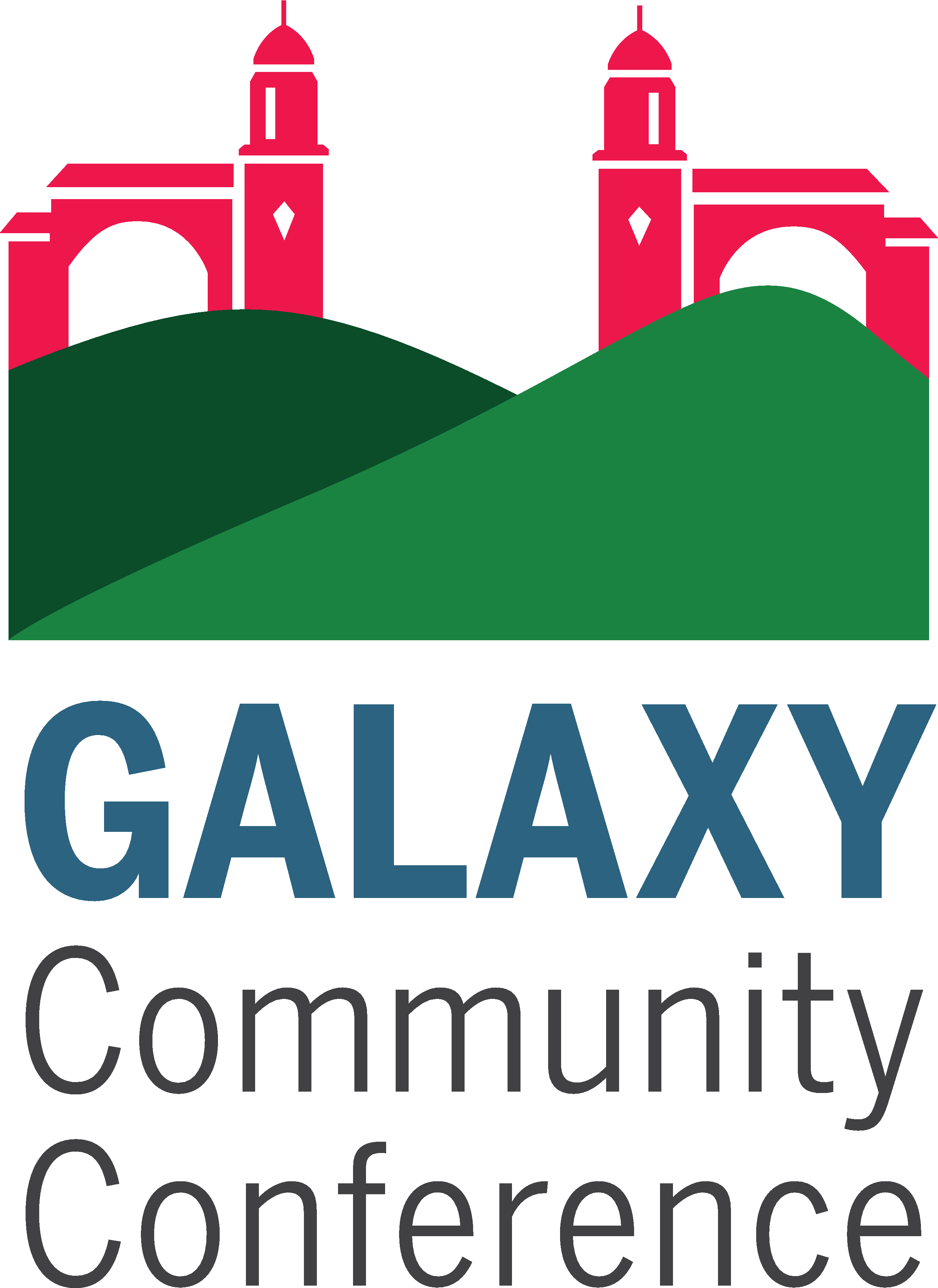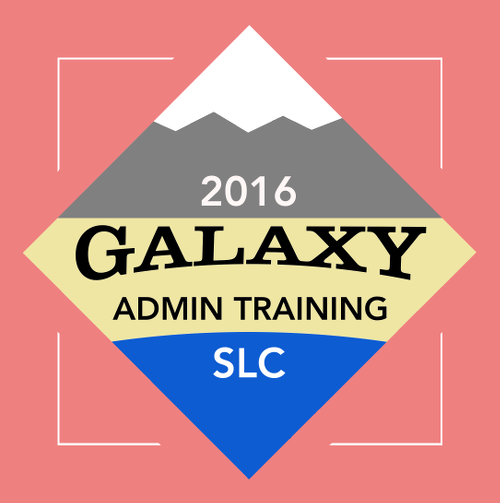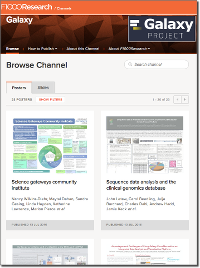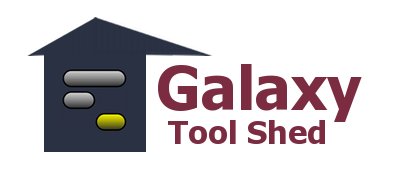August 2016 Galaxy News
Welcome to the August 2016 Galactic News, a summary of what is going on in the Galaxy community.
If you have anything to include in the next News, please send it to [Galaxy Outreach](mailto:outreach AT galaxyproject DOT org).
Events
GCC2016 presentations and training are online
Slides for accepted and lightning talks are online, as are the posters. They have also been posted to the new F1000Research Galaxy Channel. Video of training and talks will also be posted online in the coming month.
Thanks to everyone for making GCC2016 a success, and looking forward to seeing you at GCC2017!
Swiss-German Galaxy Days
There will be a Swiss-German Galaxy Tour this fall featuring a range of events over 2 days in October. Events will held in Freiburg (Germany).
Registration is free, but space is limited on both days. We recommend you register soon to secure your spot for one or both days of the SG2016Tour: Register Now
Galaxy Admin Training, November 7-11, Salt Lake City, Utah
The first ever Galaxy Project Admin Training workshop will be held November 7-11 in Salt Lake City Utah. The workshop features a 2 day basics session followed by a 3 day advanced session. There is a separate registration for each session, and participants may sign up for one or both. We are working with the Utah High Performance Computing Center at the University of Utah for cluster access during the advanced session.
The introductory session will be at the Salt Lake City Library, and the advanced session will be on the University of Utah (the “U”) campus. Workshop housing is on the U as well.
The curriculum will be published and registration will open shortly. Watch this space. This workshop is the week before Supercomputing’16 meets in Salt Lake.
Other upcoming events
There are a plentitude of Galaxy related events coming up. Here’s what’s coming up over the next fe months:
| |
Designates a training event offered by GTN member(s) |
See the Galaxy Events Google Calendar for details on other events of interest to the community.
F1000Research Galaxy Channel
We are pleased to announce the new F1000Research Galaxy Channel. This channel brings together in one place presentations and posters about the Galaxy framework, including presentations from Galaxy events such as the just finished GCC2016. If you have presented Galaxy related material at a conference in either talk or poster format, please consider submitting your presentation to the Galaxy channel.
New Papers
55 new publications referencing, using, extending, and implementing Galaxy were added to the Galaxy CiteULike Group in July.
Some highlights from last month:
-
SparkGalaxy: Workflow-based Big Data Processing Sara Riazi, directed research project
-
A GPU-based high performance computing infrastructure for specialized NGS analyses Andrea Manconi et al., PeerJ Preprints (28 June 2016), doi:10.7287/peerj.preprints.2175v1
-
A resource provisioning framework for bioinformatics applications in multi-cloud environments Senturk et al., Future Generation Computer Systems (July 2016), doi:10.1016/j.future.2016.06.008
-
VisualGraphX: Interactive Graph Visualization within Galaxy Richard A. Schäfer and Björn Voß, Bioinformatics (13 July 2016), btw414, doi:10.1093/bioinformatics/btw414
Tagged Publications
The new papers were tagged with:
| # | Tag | # | Tag | # | Tag | # | Tag | |||
|---|---|---|---|---|---|---|---|---|---|---|
| 1 | Cloud | 1 | Other | - | Shared | 7 | UseMain | |||
| 1 | HowTo | - | Project | 2 | Tools | 10 | UsePublic | |||
| 1 | IsGalaxy | 8 | RefPublic | 1 | UseCloud | 2 | Visualization | |||
| 35 | Methods | 1 | Reproducibility | 5 | UseLocal | 6 | Workbench |
Who’s Hiring
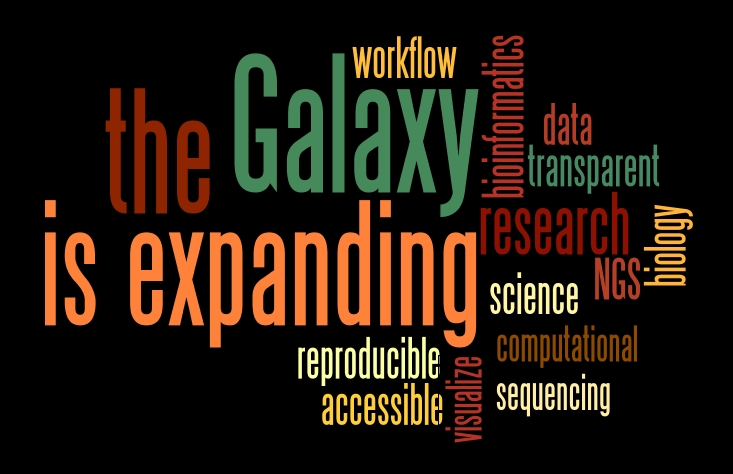
The Galaxy is expanding! Please help it grow.
- PhD Student Bioinformatics, German Cancer Research Center (DKFZ), Munich Germany
- Ingénieur en développement de composants Galaxy pour la protéomique, MAIAGE (Jouy-en-Josas), France. Closes August 28
- Postdoctoral Research Position, Multiomic Bioinformatics, University of Minnesota
- eResearch Analyst - Bioinformatics, University of Queensland Act fast.
- PhD student or postdoctoral researcher, University of Freiburg, Freiburg, Germany. Act fast.
- Postdoctoral Researcher: Forest Genomics Database and Software Developer, University of Connecticut. ”… data sharing among partner databases through Galaxy modules.” Act fast.
- Software developer and Post-docs, Gehlenborg Lab, Harvard Medical School, Boston, Massachusetts, United States
Got a Galaxy-related opening? Send it to outreach@galaxyproject.org and we’ll put it in the Galaxy News feed and include it in next month’s update.
Public Galaxy Server News
There are over 80 publicly accessible Galaxy servers and four semi-public Galaxy services. Here’s what happened with them in July.
Galaxy-P
- Four years of Galaxy-P papers!
- Tim Griffin and colleagues are developing a multiomic platform to help cancer researchers identify meaningful mutations
Galaxy Community Hubs
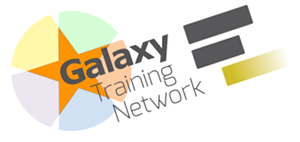 |
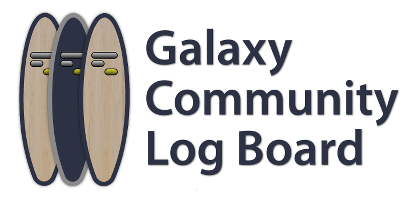 |
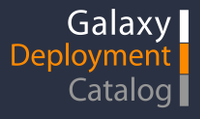 |
| Share your training resources and experience now | Share your experience now |

New Galaxy Deployment Catalog and Community Log Board entries were added:
-
The Public Health Agency of Canada - National Microbiology Laboratory Galaxy server helps identify, prevent and control infectious diseases.
Releases
Earlier Releases
Galaxy v16.04
The Galaxy Committers team is pleased to announce the April 2016 (v16.04) release of Galaxy.
Please note that Python 2.6 is no longer supported as of this release. See the 16.04 release announcement for details.
Highlights
Tool Profile Versions
Tools may now declare which version of Galaxy they require. Tools requiring 16.04 or newer will have new default behaviors (such as using exit code for error detection) that should simplify tool development. See PR #1688.
Embedded Pulsar Job Runner
Galaxy can now start a Pulsar application embedded within the Galaxy process itself. This allows using Pulsar’s job staging and isolation without requiring a RESTful web service or a message queue. This is enabling usegalaxy.org to run jobs to on the new JetStream cloud. See PR #2057.
New Chemical Datatypes
Galaxy now detects and supports many molecular datatypes. See PR 1941. Thanks to Björn Grüning (@bgruening).
| Github New % git clone -b master https://github.com/galaxyproject/galaxy.gitUpdate to latest stable release % git checkout master && git pull --ff-only origin masterUpdate to exact version % git checkout v16.04 |
BitBucket Upgrade % hg pull% hg update latest_16.04 |
|
| See the Get Galaxy page for additional details regarding the source code locations. | ||
Galaxy Docker Image 16.04
And, thanks to Björn Grüning, there is also now a Docker image for Galaxy 16.04 as well.
blend4php 0.1 alpha
We are pleased to announce the alpha release of the blend4php package, a PHP wrapper for the Galaxy API. It follows the lead of BioBlend which provides a Python package for interacting with Galaxy and CloudMan—hence the use of ‘blend’ in the name of this package. blend4php currently offers a partial implementation of the Galaxy API and includes support for datasets, data types, folder contents, folders, genomes, group roles, groups, group users, histories, history contents, jobs, libraries, library contents, requests, roles, search, tools, toolshed repositories, users, visualizations and workflows.
The motivation for development of this library is for integration with Tripal, an open-source toolkit for creation of online genomic, genetic and biological databases. Integration of Tripal and Galaxy will allow the community research databases to provide next-generation analytical tools to their users using Galaxy. However, this library was created independently of Tripal to support integration of any PHP application with Galaxy.
Please see the API documentation page for full information.
Planemo 0.27.0
Planemo is a set of command-line utilities to assist in building tools for the Galaxy project. Planemo 0.27.0 was released in June. Some highlights:
- Use ephemeris to handle syncing shed tools for workflow actions. 1c6cfbb
- More planemo testing enhancements for testing artifacts that aren’t Galaxy tools. Pull Request 491
- Implement
docker_galaxyengine type. eb039c0, Issue 15 - Enhance profiles to be Dockerized Galaxy-aware. Pull Request 488
- Add linter for DOI type citation - thanks to @mvdbeek. Pull Request 484
See the release history.
galaxy-lib 16.7.8 - 16.7.9
galaxy-lib is a subset of the Galaxy core code base designed to be used as a library. This subset has minimal dependencies and should be Python 3 compatible. It’s available from GitHub and PyPi.
Highlights of June releases include:
- Updates for recent changes to Galaxy and cwltool.
- Updates to include Galaxy library for verifying test outputs and the latest dev changes to Galaxy.
CloudMan 16.04
We just released an update to Galaxy CloudMan on AWS. CloudMan offers an easy way to get a personal and completely functional instance of Galaxy in the cloud in just a few minutes, without any manual configuration or imposed quotas. Once running, you have complete control over Galaxy, including the ability to install new tools.
This is a minor update release with the following changes:
- Galaxy 16.04 update
- Availability on Amazon’s Ireland region
- A couple of bug fixes
See the CHANGELOG for a more complete set of changes.
Pulsar 0.7.0
Pulsar 0.7 was released in April. Pulsar is a Python server application that allows a Galaxy server to run jobs on remote systems (including Windows) without requiring a shared mounted file systems. Unlike traditional Galaxy job runners - input files, scripts, and config files may be transferred to the remote system, the job is executed, and the results are transferred back to the Galaxy server - eliminating the need for a shared file system.
And the rest …
Other Galaxy packages that haven’t had a release in the past four months can be found on GitHub.
ToolShed Contributions
Tool Shed contributions for June and July.
Other News
- Galaxy Communication server: Realtime communication server and its user-interface
- Supporting Community Driven Automated QA
- Public Health England’s SNP calling pipeline
- New tutorial on integrating phenotype data from ZFIN and MGI.
- how to use GenomeSpace tools in a Galaxy workflow. Video from the Genomics Virtual Lab folks.
- New interactive Galaxy tours are available:


